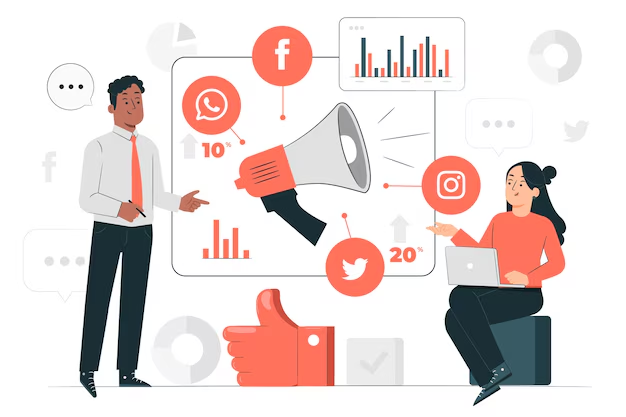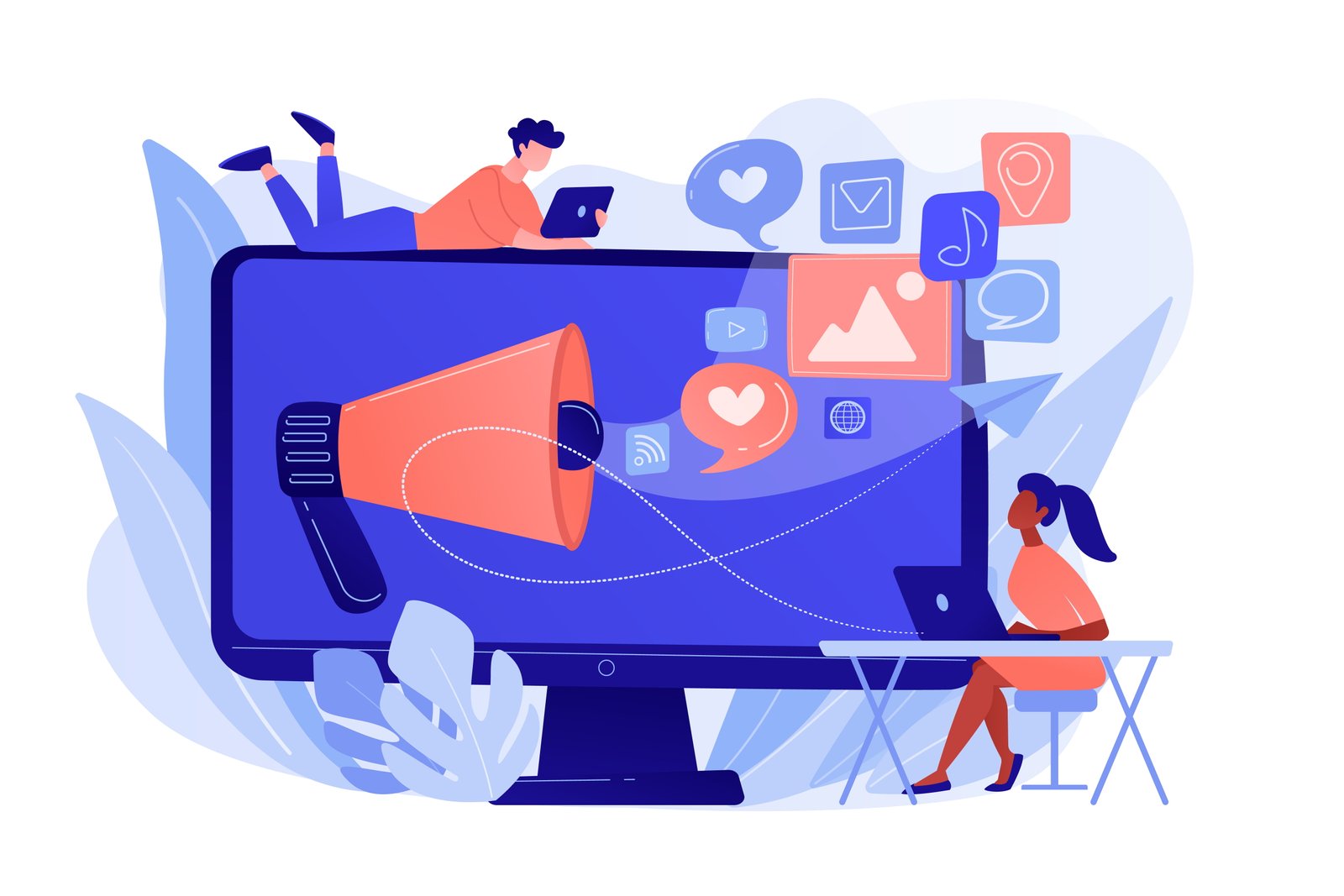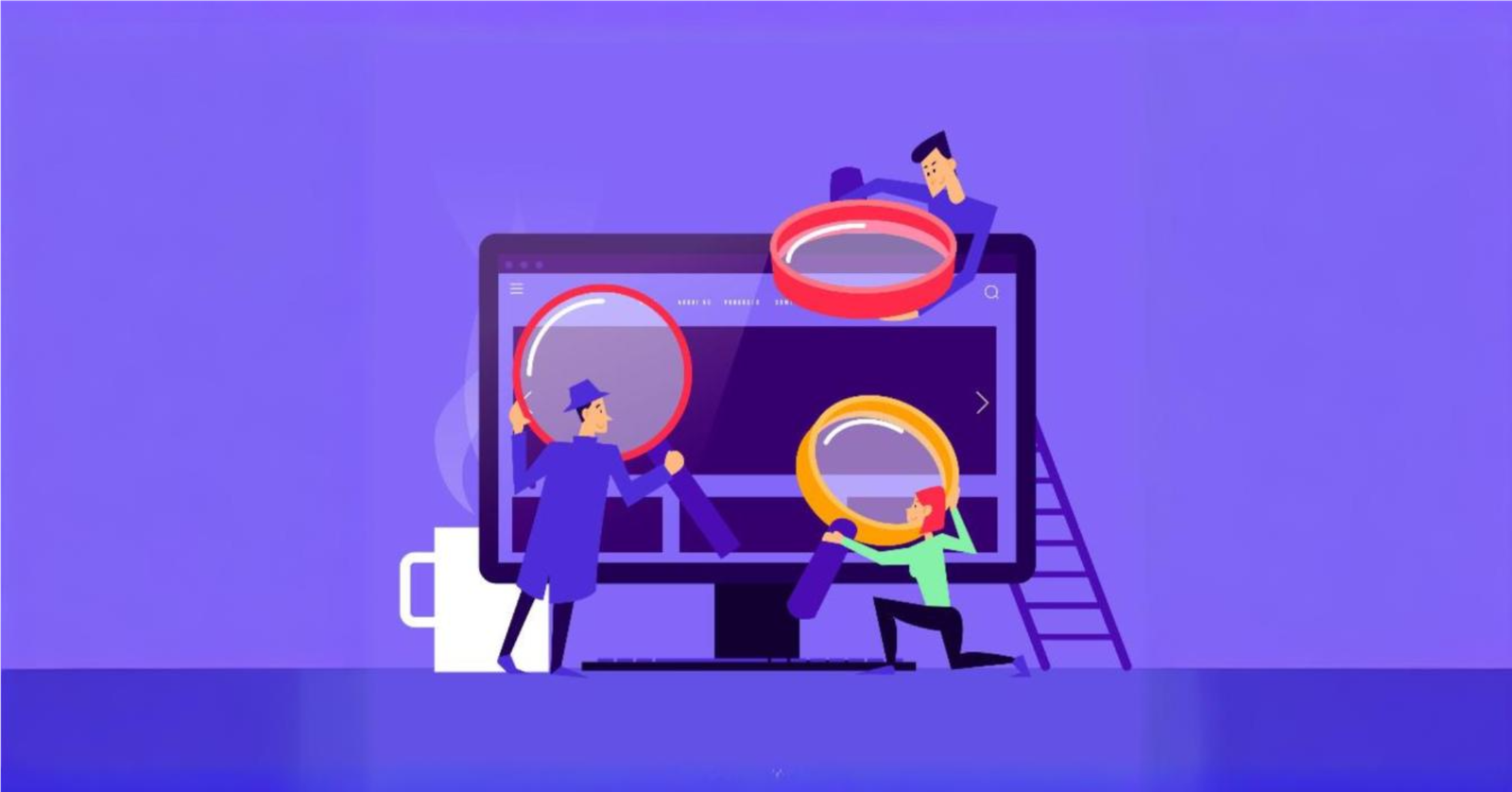Digital marketing has changed the way firms reach and interact with their target audience. Unlike traditional marketing methods, digital marketing leverages the power of the internet and various digital platforms to connect with consumers, measure success, and adapt strategies in real-time. But what sets digital marketing apart? Let’s explore the key characteristics that define digital marketing today.
What is digital marketing?
Digital marketing refers to the use of digital channels such as search engines, social media platforms, websites, and email to promote products, services, or brands. It leverages the internet and electronic devices to connect businesses with their target audience. Unlike traditional marketing, digital marketing allows for real-time interaction, data-driven decision-making, and the ability to measure success more accurately.
Why is digital marketing important?
Digital marketing is vital because most consumers now begin their buying process online. With the majority of people spending a significant amount of time on their phones or computers, businesses can’t afford to miss out on this vast potential audience. Digital marketing allows companies to reach a global audience, engage directly with customers, and gain valuable insights into customer behavior. It’s also cost-effective, making it an ideal solution for both small businesses and large enterprises.
Characteristics of Digital Marketing
1. Measurable Results
One of the standout features of digital marketing is the ability to track and measure performance. With tools like Google Analytics, Facebook insights, and email marketing platforms, marketers can monitor how many people interacted with their campaigns, what actions they took, and how successful those actions were.
-
Real-Time Data: Unlike traditional methods, where it may take weeks or months to gather data, digital marketing offers real-time feedback. This allows businesses to adjust their strategies on the go, ensuring that campaigns are always optimized for the best results.
2. Reaching a Targeted Audience
Digital marketing allows businesses to target specific audiences based on various factors such as demographics, location, interests, and online behavior. This level of precision ensures that your communication reaches the intended recipients at the appropriate moment.
-
Personalization: Through techniques like remarketing and behavioral targeting, businesses can create personalized ads and emails that are more likely to convert potential customers into buyers.
3. Cost-Effective
Compared to traditional marketing, digital marketing can be significantly cost-effective. Businesses can reach a larger audience with a smaller budget, making it particularly appealing for startups and small businesses.
-
Lower Entry Costs: Platforms like Google Ads or social media advertising allow businesses to set budgets as low as they want, making it accessible for brands of all sizes.
4. High Engagement
Digital marketing opens up multiple channels for direct engagement with customers. Whether it’s through social media interactions, email campaigns, or live chats, businesses can communicate and respond to customers in real time, building stronger relationships.
-
Interactive Content: Unlike traditional marketing, digital platforms allow businesses to create interactive content such as polls, quizzes, or surveys that encourage users to engage with the brand.
5. Multiple Channels
One of the greatest strengths of digital marketing is that it spans across multiple channels, giving businesses a variety of ways to reach their audience. Some of the most prominent digital marketing channels include:
-
Search Engine Optimization (SEO): Improving your website’s visibility in search engine results.
-
Social Media Marketing: Engaging with users on platforms like Facebook, Instagram, LinkedIn, and Twitter.
-
Content Marketing: Creating useful and instructive content such as blog entries, videos, and infographics.
-
Email Marketing: Sending customized emails to nurture leads and turn them into customers.
-
Pay-Per-Click Advertising (PPC): Paid advertising strategies that allow you to reach users through search engines or social platforms.
6. Flexibility and Adaptability
Digital marketing is highly adaptable, allowing businesses to change their campaigns quickly based on performance. Whether it’s tweaking an ad copy, shifting your audience targeting, or adjusting the budget, digital marketing gives you the flexibility to pivot in response to changing market conditions or feedback.
-
A/B Testing: Digital platforms allow you to test different versions of your ads, emails, or landing pages to see which performs better, optimizing results for future campaigns.
7. Global Reach
While traditional marketing is often limited by geographic constraints, digital marketing can reach audiences worldwide with just a few clicks. Whether you’re a local business trying to expand or a global brand reaching new markets, digital platforms can help you connect with consumers anywhere.
-
Online Accessibility: With millions of people online every day, digital marketing allows businesses to connect with audiences regardless of their location, broadening their market potential.
8. Two-Way Communication
Unlike traditional marketing, which tends to be one-way, digital marketing allows for two-way communication between the business and the consumer. This builds trust and loyalty, as customers can ask questions, leave feedback, or even participate in discussions related to the brand.
-
Customer Relationships: Social media platforms, for example, provide a space for businesses to respond directly to comments, creating stronger relationships and improving brand reputation.
9. Personalization and Automation
Through the use of data and automation, digital marketing enables a high level of personalization, which improves customer engagement and conversion rates. Personalized email campaigns, product recommendations, and targeted ads all help businesses create a more tailored experience for each user.
-
Marketing Automation: Tools like email automation, chatbots, and AI-driven ads allow businesses to efficiently manage customer interactions without sacrificing personalization.
10. Scalability
Digital marketing allows businesses to scale their efforts according to their goals and budget. Whether you’re looking to start small and grow over time, or you want to launch a large campaign right out of the gate, digital marketing offers the flexibility to scale up or down as needed.
-
Start Small, Grow Big: Businesses can begin with minimal investment and gradually expand their digital marketing strategies as they see success, allowing for sustainable growth.
Latest Trends in Digital Marketing
The landscape of digital marketing is constantly evolving, and staying on top of the latest trends is crucial for businesses to remain competitive. Here are some of the top trends in 2024:
-
AI and Machine Learning: Artificial intelligence (AI) is being used to personalize customer experiences through chatbots, predictive analytics, and automated customer service.
-
Voice Search Optimization: With the rise of voice-activated devices like Alexa and Google Home, optimizing content for voice search is becoming a priority.
-
Video Marketing: Short-form videos, particularly on platforms like TikTok and Instagram Reels, are gaining popularity for brand promotion.
-
Interactive Content: Quizzes, polls, and interactive infographics are helping brands engage users and increase their time spent on a website.
-
Data privacy and transparency: As consumers become more aware of their data privacy, brands are focusing on transparent data practices to build trust.
Online Methods Used to Increase Brand Awareness
There are various digital marketing techniques that businesses can use to boost brand awareness and make a lasting impression on their target audience:
-
Search Engine Optimization (SEO): Improving your website’s content and structure to rank higher on search engines for relevant keywords.
-
Social Media Marketing: Utilizing platforms like Facebook, Instagram, Twitter, and LinkedIn to engage with your audience, share content, and promote your brand.
-
Content Marketing: Creating useful and instructive content, such as blog articles, videos, and infographics, to attract and engage your intended audience.
-
Email Marketing: Sending personalized email campaigns to nurture leads, announce promotions, and maintain customer relationships.
-
Pay-Per-Click Advertising (PPC): Running paid ads on platforms like Google Ads or social media to get immediate visibility and drive traffic to your site.
Examples of Digital Marketing Strategies
Here are some examples of effective digital marketing strategies:
-
SEO-Driven Blog Content: Businesses can create a blog that answers common questions in their industry, helping them rank higher in search results.
-
Social Media Contests: Brands can engage their followers by running contests on social media platforms, encouraging users to share content or tag friends to win a prize.
-
Email drip campaigns: Sending a series of automated, personalized emails to leads over time can nurture them into making a purchase.
-
Influencer Marketing: Partnering with influencers who have large followings can help boost brand credibility and reach new audiences.
-
Retargeting Ads: Using cookies to show ads to people who have previously visited your site increases the chances of conversions.
Tips for Successful Digital Marketing
To get the most out of your digital marketing efforts, keep these tips in mind:
-
Know Your Audience: Understanding your target market’s needs, interests, and behaviors is the first step in crafting an effective digital marketing strategy.
-
Stay Consistent: Post regularly on social media, update your blog, and engage with your audience frequently to maintain a strong online presence.
-
Measure Your Results: Use tools like Google Analytics and social media insights to track your performance and make data-driven adjustments.
-
Adapt to Trends: Digital marketing is always changing, so be open to trying new strategies and platforms, such as video content or voice search optimization.
-
Prioritize User Experience: A fast-loading, mobile-friendly website will not only improve user experience but also help your SEO rankings.
Some Facts About Characteristics of Digital Marketing
Here are some important facts concerning digital marketing.
-
It’s measurable: Unlike traditional marketing methods, digital marketing allows businesses to track every click, conversion, and engagement in real-time.
-
Targeted Advertising: Digital platforms offer precise targeting options, allowing businesses to reach people based on age, location, interests, and online behavior.
-
Cost-Effective: Even small businesses can implement digital marketing strategies without the need for massive budgets, making it an accessible option.
-
Two-Way Communication: Digital marketing provides opportunities for real-time interaction between businesses and customers, fostering deeper relationships.
Conclusion
The characteristics of digital marketing make it an essential tool for businesses in today’s digital landscape. From measurable results and cost-effectiveness to its ability to target specific audiences and provide two-way communication, digital marketing offers a dynamic and flexible way to reach and engage with consumers. By leveraging the right strategies, businesses can connect with their audience, build trust, and drive results efficiently.
FAQ
Q: What is digital marketing? A: Digital marketing is the promotion of products or services using digital channels like search engines, social media, email, and websites.
Q: Why is digital marketing important? A: It allows businesses to reach a larger audience, interact with customers in real-time, and measure the success of their campaigns, all while being more cost-effective than traditional marketing methods.
Q: How does SEO help with digital marketing? A: SEO helps your website rank higher in search engine results, making it easier for customers to find you when they search for relevant keywords.
Q: What are some digital marketing trends in 2024? A: Some key trends include AI-driven personalization, voice search optimization, video marketing, and interactive content.
Q: What kinds of digital marketing techniques are there? A: Examples include SEO-optimized blog content, social media contests, influencer marketing, email drip campaigns, and retargeting ads.







